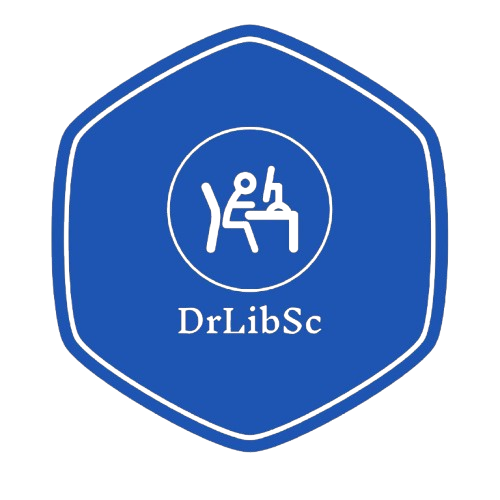A Scientometric Study on Bibliotherapy in Scopus Database
DOI:
https://doi.org/10.63880/jlii.v1i1.6Keywords:
Mental health, Bibliotherapy, Scientometrics, Citation analysis, Research Productivity, Bibliometric analysis, BibliometricsAbstract
Purpose: The study aimed to identify and characterize the features of published literature on bibliotherapy from 1942 to 2024. It examined publication year, document type, language, country of origin, institutional contributions, funding bodies, and leading journals to provide a comprehensive understanding of research growth in this field.
Methodology: The Scopus database was selected as the data source, using bibliotherapy as the search term. A total of 1,503 research articles were retrieved and analyzed. Quantitative techniques were applied to measure trends, and Tableau software was used to visualize patterns across time, geography, and institutional contributions.
Findings: The results indicated a steady increase in scholarly output, rising from 3.72 percent in 2013 to 5.72 percent in 2024. The United States was the most productive country with 565 publications. The Karolinska Institute ranked as the leading institution, while the National Institute of Mental Health was identified as the top funding body with 40 supported publications. The Journal of Poetry Therapy, published by Taylor and Francis, emerged as the most active journal, contributing 69 articles.
Implications: The study highlights the value of bibliometric analysis for mapping scholarly activity in bibliotherapy. The findings provide useful insights for researchers, practitioners, and policymakers to strengthen collaboration, guide future research, and expand the applications of bibliotherapy in both academic and clinical contexts.
References
Cohen L. J. (1992). Bibliotherapy. The therapeutic use of books for women. Journal of nurse-midwifery, 37(2), 91–95. https://doi.org/10.1016/0091-2182(92)90143-q
Dow, M.G.T. (1982). Behavioral Bibliotherapy: Theoretical and Methodological Issues in Outcome Research into Self-Help Programs. In: Main, C.J. (eds) Clinical Psychology and Medicine. Springer, Boston, MA. https://doi.org/10.1007/978-1-4684-4136-9_9.
Eftimova, S., Popova, E., & Todorova, T. (2022). Publications about bibliotherapy on open access. https://bibliotherapy.unibit.bg/bg/,
Eich, C. M. (1999). Bibliotherapy: background, application and research. Graduate Research Papers. 589. https://scholarworks.uni.edu/grp
Jack, S. J., & Ronan, K. R. (2008). Bibliotherapy: Practice and research. School Psychology International, 29(2), 161–182. https://doi.org/10.1177/0143034308090058
Joseph, J., Jose, J., Jose, A. S., Ettaniyil, G. G., & Nair, S. V. (2024). A scientometric analysis of bibliotherapy: mapping the research landscape. In Library Hi Tech. Emerald Publishing. https://doi.org/10.1108/LHT-08-2023-0341
Lenkowsky, R. S. (1987). Bibliotherapy: A review and analysis of the literature. The Journal of Special Education, 21(2), 123–132. https://doi.org/10.1177/002246698702100211
Malhi, P., & Bharti, B. (2023). Healing with Storybooks: Using Bibliotherapy to Help Children Cope with Death. Indian Journal of Social Psychiatry, 39(3), 298–300. https://doi.org/10.4103/ijsp.ijsp_76_21
Monroy-Fraustro, D., Maldonado-Castellanos, I., Aboites-Molina, M., Rodríguez, S., Sueiras, P., Altamirano-Bustamante, N. F., de Hoyos-Bermea, A., & Altamirano-Bustamante, M. M. (2021). Bibliotherapy as a Non-pharmaceutical Intervention to Enhance Mental Health in Response to the COVID-19 Pandemic: A Mixed-Methods Systematic Review and Bioethical Meta-Analysis. In Frontiers in Public Health (Vol. 9). Frontiers Media S.A. https://doi.org/10.3389/fpubh.2021.629872
Redman, H., Melendez-Torres, G. J., Bethel, A., & Green, J. (2024). The impact of school-based creative bibliotherapy interventions on child and adolescent mental health: a systematic review and realist synthesis protocol. Systematic Reviews, 13(1). https://doi.org/10.1186/s13643-024-02482-8
Shahbudin, N. S., & Jamil, R. (2024). Technology empowerment in disability employment: a bibliometric and systematic review. In Journal of Enabling Technologies. Emerald Publishing. https://doi.org/10.1108/JET-01-2024-0009
Downloads
Published
How to Cite
Issue
Section
License
Copyright (c) 2025 Satish S, Khyamaling R, Dr. Vasanthakumar M, Dr. Shivakumaraswamy K N

This work is licensed under a Creative Commons Attribution-NonCommercial 4.0 International License.
CC BY-NC 4.0
Deed (See the legal code)
You are free to:
- Share — copy and redistribute the material in any medium or format
- Adapt — remix, transform, and build upon the material
- The licensor cannot revoke these freedoms as long as you follow the license terms.
Under the following terms:
- Attribution — You must give appropriate credit , provide a link to the license, and indicate if changes were made . You may do so in any reasonable manner, but not in any way that suggests the licensor endorses you or your use.
- NonCommercial — You may not use the material for commercial purposes .
- No additional restrictions — You may not apply legal terms or technological measures that legally restrict others from doing anything the license permits.
Notices:
You do not have to comply with the license for elements of the material in the public domain or where your use is permitted by an applicable exception or limitation .
No warranties are given. The license may not give you all of the permissions necessary for your intended use. For example, other rights such as publicity, privacy, or moral rights may limit how you use the material.


